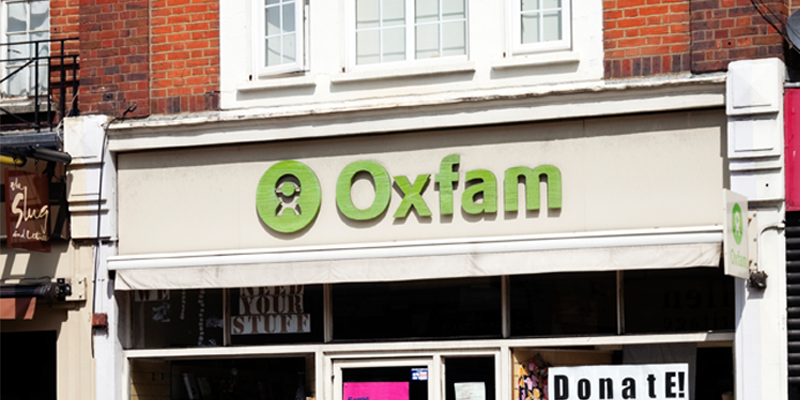One of Britain’s biggest and best-known charities, Oxfam, is in crisis following claims that it failed fully to disclose the details of a scandal involving its senior field workers exploiting local prostitutes in Haiti when the charity was supposed to be providing emergency aid after the devastating earthquake of 2010. Oxfam’s deputy chief executive has resigned and the government has threatened to cut off the aid money it channels through the charity unless it is convinced Oxfam is getting its house in order. The crisis raises questions not just about Oxfam but about large charities in general and about the government’s aid policy.
The crisis blew up last week following the publication of a Times investigation that alleged the charity had failed to report to regulators such as the Charity Commission and to the public at large, the full details of a scandal a whistle-blower had brought to its attention. Several senior members of its staff, stationed in Haiti after the earthquake which had killed around 200,000 people, had been hiring local prostitutes for sex parties that are thought to have taken place at a villa rented for its senior staff by Oxfam. Some of the sex workers were thought probably to be under age, though this has never been established. As a result of its own investigation, Oxfam fired four members of its Haiti staff, and three others resigned, including its country director, Roland van Hauwermeiren, who later went on to work for another charity. It appears that Oxfam did not alert that charity to the record of the man it was hiring.
At the time Oxfam disclosed to the public merely that there had been ‘serious misconduct’ without mentioning its sexual nature or providing any details. To the Charity Commission it reported that this misconduct involved ‘inappropriate sexual behaviour, bullying, harassment and staff intimidation’ but made no mention of the exploitation of local sex workers nor of the possibility that minors may have been involved.
When the full nature of the scandal finally emerged last week there was near-universal outrage expressed that a charity whose purpose was to bring aid and relief to a traumatised country should at the same time be exploiting the very people it was there to help. On Monday, the deputy chief executive of Oxfam, Penny Lawrence, resigned, saying she was ‘ashamed’ at what happened, and admitted that the charity had failed to act on some prior warnings about the employees involved.
The issue, however, is not whether the field workers should have behaved in this way – obviously, no one believes that they should- but nor is it even mostly about whether the charity has sufficient safeguards to prevent such outrages happening.
Most people acknowledge that the vast majority of aid workers are decent, dedicated people and that even the most stringent safeguards can be evaded by those few intent on exploiting the chaos following a natural disaster for their own evil ends. The issue is how open a charity like Oxfam should be when its own people commit such outrages.
Penny Mordaunt, the International Development Secretary, said on Sunday that Oxfam had done ‘absolutely the wrong thing’ in not fully reporting what had happened. Those who agree with her argue that it is vital for an organisation such as a charity that appeals to people’s better moral nature to give it donations to be absolutely transparent about its own behaviour and never more than when that behaviour so lamentably falls short. For Ms Mordaunt there is an additional dimension. Among her responsibilities is being answerable to taxpayers for the use of its money. Unless Oxfam could persuade her of the stringency of its safeguarding procedures and of its commitment to openness and transparency, the millions of the government’s aid budget it channels through Oxfam would be withdrawn, she said.
Oxfam’s current chief executive Mark Goldring was not in office at the time of the Haiti scandal and he provided what appears to be an explanation as to why it had happened. He said immediately after the story broke: ‘I don’t think it was in anyone’s interests to be describing the details of the behaviour in a way that was actually going to draw extreme attention to it when what we wanted to do was get on and deliver an aid programme’. In other words, to have been more forthcoming back in 2011 might have jeopardised donations and forced Oxfam to trim its programmes. Some commentators have pointed out that charities like Oxfam are in competition with each other for donor funds and that this also acts against transparency.
If this was the thinking back in 2011 it has now clearly backfired. Oxfam now faces the prospect of losing not only government (and EU) funding but also the public’s donations too as its ‘brand’ is damaged by the scandal. Many large charities have come under fire for allegedly spending too much of their charitable income on administrative costs, including what are often said to be excessive salaries for its senior management. This scandal won’t exactly enhance their reputations.
But there may be a broader reaction too. The government’s funding of Oxfam and other charities is part of its commitment to spend 0.7% of GDP on foreign aid, a commitment enshrined in law and backed not only by the Labour Party (which long advocated it) but by the Conservative prime ministers, David Cameron and Theresa May, in the teeth of vocal opposition from many members of their party. Critics of the aid budget have long complained that it is wasteful, spends money just for the sake of hitting the target and that it finances corruption in many recipient countries. They want the commitment ditched or else to use the development budget for additional purposes than just development, including fighting terrorism. The Oxfam scandal will be grist to their mill. Indeed some supporters of the target accuse its critics of overblowing the Oxfam scandal simply for the purpose of attacking the target.
What do you make of it all? Should Oxfam have been more open about the scandal at the time or do you think the charity was justified in trying to protect its reputation and keep the money flowing into it? Do you think the Charity Commission and the government are right to insist now on total transparency? Should the government be ready to stop its own funding of Oxfam if it is not satisfied with how the charity reforms its procedures? Should the 0.7% aid target be kept or dropped? And what, if anything, has the crisis at Oxfam done to your attitudes to big charities and your willingness to give to them?
Let us know your views.











